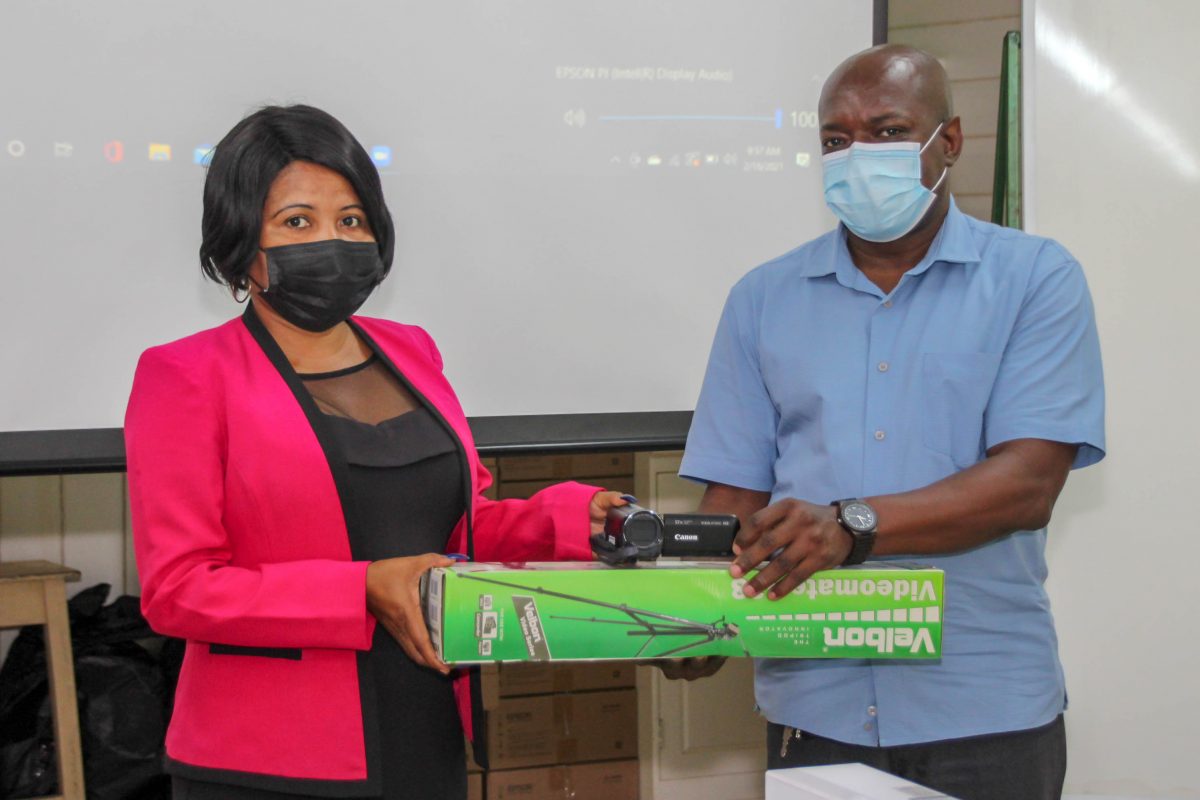Technical and Vocational Education and Training (TVET) is now fully equipped to deliver online learning, says the Ministry of Education.
Five technical institutes and five learning centres, which are located in coastal and near coastal regions of Guyana were selected to facilitate the new online method of learning.
The ministry in a press release on Tuesday said that the selected institutes and learning centres are: the Government Technical Institute (GTI), Linden Technical Institute (LTI), New Amsterdam Technical Institute (NATI), Guyana Industrial Training Centre (GITC), Essequibo Technical Institute (ETI), Upper-Corentyne Industrial Training Centre (UCITC), Mahaicony TVET Centre, Leonora TVET Centre, Carnegie School of Home Economics (CSHE), and the Craft Production and Design Department (CP&DD).

Coordinator of the Skills Development and Employability Project (GSDEP), Theron Seibs explained that the initiative was birthed by the COVID-19 pandemic last year. According to the press release, he said that the Caribbean Development Bank, which is funding the GSDEP, was approached to repurpose a part of the loan to purchase the Information and Communication Technology (ICT) equipment for the institutions. Siebs explained that

the United Nations Development Programme (UNDP) was approached to fast track the purchasing of the items at a cost of over $65M. The equipment includes 138 laptops, 12 tablets, 40 camcorders, 128 projectors and 20 cloud storage devices.
And Chief Education Officer, Dr. Marcel Hutson said that the launch and handing-over ceremony was a significant occasion as it relates to TVET.
“We are keen on reforming TVET and you will see it manifested in our strategic plan”, the CEO noted. Africo Selman, advisor to the Minister of Education, disclosed that the ministry intends to target 100 students from Grade 10 and 11 only. These are students who were not able to return to schools following the closure of schools. Selman added that with ICT the Ministry of Education is closer to eliminating the gaps between the coastland and the hinterland.
Deputy Chief Education Officer (Technical), Patrick Chinedu Onwuzirike said that one of the indicators of how well TVET is doing is by assessing how many hinterland students attend TVET institutions on the coast. He said that over the years, dorms have been used to increase the number of students. He said that a plan has been conceptualized to have students brought to the coast to benefit from practical training when it is necessary.
Divisional Chief of the Caribbean Development Bank, Deidre Clarendon said that COVID-19 has transformed in significant ways how persons live, work and interact with each other. She said that the TVET skills training sector has not escaped the impacts of COVID-19 and in fact, has been uniquely affected. She said that according to the International Labour Organization, over 60 per cent of learners in Latin America and the Caribbean are still experiencing disruptions to their learning. Clarendon said that at the commencement of COVID-19, CDB took a multifaceted approach to assess the impact of the pandemic on borrowing countries to offer a range of options to mitigate those impacts, particularly the education and training sector. The launch of the TVET Online Training was held on Tuesday at the Government Technical Institute on Woolford Avenue.






